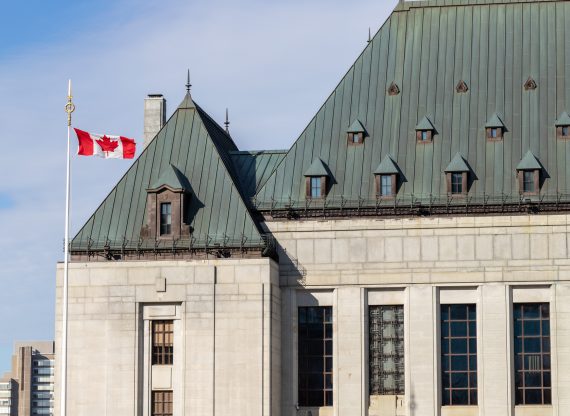
2-minute read
Capping the energy sector’s emissions would deprive Canada of over $6.0 billion a year
Montreal, December 7, 2023 – The capping of the energy sector’s emissions, planned by the Trudeau government, will be costly for the Canadian economy and have a negligible impact on the environment, according to a Montreal Economic Institute researcher.

2-minute read
Airline industry: Federal fees push plane ticket prices into the stratosphere
Montreal, December 7, 2023 – The high cost of domestic air travel is largely due to the various fees the federal government charges airlines and airports, according to a Montreal Economic Institute study released this morning.

3-minute read
Interprovincial trade: Quebec is in last place, Alberta in first
Montreal, November 30, 2023 – Quebec is the Canadian jurisdiction that is most closed off to interprovincial trade, according to the most recent edition of the Montreal Economic Institute’s Internal Trade Provincial Leadership Index, released this morning.

3-minute read
Economic update: Still nothing to help tame inflation
Montreal, November 21, 2023 – The Trudeau government has missed an opportunity to help the Bank of Canada fight inflation in its latest economic update, says a researcher at the Montreal Economic Institute.

3-minute read
MEI-Ipsos Poll: Majority of Canadians support carbon capture, energy corridor projects
Montreal, November 9, 2023 – Two in three Canadians support the establishment of “energy corridors,” according to a recent Montreal Economic Institute-Ipsos poll released earlier today.

2-minute read
MEI-IPSOS poll: A majority of Quebecers support the construction of new dams and wind turbines
Montreal, November 9, 2023 – Seven in ten Quebecers are in favour of building new hydroelectric dams to cope with the disappearance of Hydro-Québec’s energy surpluses, according to a Montreal Economic Institute-IPSOS poll released this morning.

2-minute read
Quebec budget update: A prudent, but necessary approach
Montreal, November 7, 2023 – Quebec Finance Minister Éric Girard has tabled a prudent budget update this morning, according to a researcher from the Montreal Economic Institute.

2-minute read
Public transit funding: Reviewing bus driver compensation would cut the deficit in half
Montreal, November 6, 2023 – Bringing bus drivers’ compensation level in line with other positions in the same category would reduce transit agency spending by $250 million, says the Montreal Economic Institute.

3-minute read
Hydro-Québec’s Action Plan 2035: More realistic demand projections
Montreal, November 2, 2023 – Hydro-Quebec’s increased electricity demand projections are more realistic, says the Montreal Economic Institute in reaction to the publication of the Crown corporation’s Action Plan 2035.

1-minute read
The Montreal Economic Institute applauds the Supreme Court’s ruling on Bill C-69
Montreal, October 13, 2023 – The Montreal Economic Institute reacted to this morning’s Supreme Court Ruling calling large portions of the federal Impact Assessment Act, also known as Bill C-69, unconstitutional.

